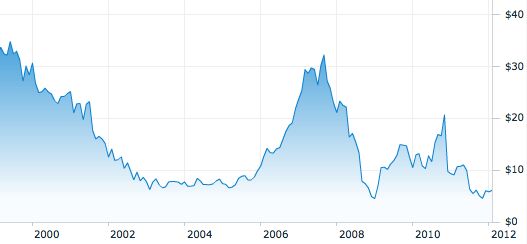Italy Seizes Gaddafi's Stake In Fiat
A year ago nearly to the day, I was investigating the connection between Libyan dictator Muammar Gaddafi and Fiat. With an American-led intervention in Libya underway, Reuters had reported that a Wikileaked State Department document revealed that the Libyan Government owned a two-percent stake in the automaker Fiat as recently as 2006. When I contacted Fiat’s international media relations department for comment, I received this response:
Dear Mr Niedermeyer,
Further to your email, I would mention that the Reuters report you refer to is incorrect. As too are other similar mentions that have appeared recently in the media concerning the LIA’s holdings in Fiat.
The LIA sold all of its 14% shareholding in Fiat SpA in 1986 – ten years after its initial stake was bought. It no longer has a stake in Fiat SpA.
I trust that this clarifies the matter.
It didn’t, actually. In fact the matter remained as clear as mud to me until just now, when I saw Reuters’ report that Italian police have seized $1.46 billion worth of Gaddafi assets, including “stakes in… carmaker Fiat,” under orders from the International Criminal Court.
So, did Fiat lie? Not exactly. The Libya Arab Foreign Bank did sell back its shares in 1986, but the Wikileaked memo claimed that a successor entity, the Libyan Arab Foreign Investment Company, was the more recent Libyan investor. Not being well-versed in the structure and history of Libya’s sanction-avoiding foreign investment shell companies, and lacking the resources to effectively pursue the story ( tracking Gaddafi-era investments is a chore), I left it there. And even now that Italian police confirm that a Gaddafi-controlled stake in Fiat has been seized, it’s not at all clear whether Fiat’s management was aware of this.
The AGI has the most detailed account, reporting
The Guardia di Finanza Corps of Rome has seized property worth more than 1.1 bln euro from members of the Ghaddafi family upon a warrant of the International Criminal Court of The Hague. The property seized includes real estate, company shares and bank accounts that belong to members of the Ghaddafi family or to people of Ghaddafi’s entourage with an overall value of more than 1.1 bln euro
Property investigations carried out by the GdF of Via dell’Olmata, in Rome have enabled to discover two financing companies through which leaders of the former Libyan regime had made investments in Italy. [emphasis added]
That covers Fiat management fairly well: at the very least, it appears that they didn’t know about Libyan investment until police were involved. I might suspect that this very Gaddafi stake in Fiat was frozen by Italian authorities prior to my request for comment, and Fiat’s representative misled me about it… but I have no way of proving it. Time will (hopefully) tell.
Meanwhile, on this side of the pond, it’s only a little strange that this wasn’t somehow brought to light in pre-bailout vetting of Fiat. Sure, a foreign enemy of the United States was a significant shareholder in the firm that was handed a bailed-out Chrysler for no cash down. On the other hand, Libya was not on the War On Terror radar at the time, and the auto task force had enough to worry about without investigating Fiat’s shareholders. All the same, chalk this up as yet another example of the unintended consequences of government intervention in the economy.
Finally, there’s the real question: did Gaddafi actually benefit from his Fiat investment? It all depends on when this second investment in Fiat shares took place. The Wikileaked memo says Libya owned two percent of Fiat as of 2006, which means it was enjoying the short-lived Marchionne boom ( financed in part by General Motors) after years of decline and stagnation. And when things headed south in 2008, snagging Chrysler for nothing sent Fiat stock on its last real bounce… which means the Gaddafi regime did benefit to some extent from the auto bailout. Still, with Fiat’s shares pricing at all-time lows the Libyan dictator almost certainly lost money on his Fiat investment over the years. Unless the Guardia di Finanza find evidence that Fiat’s management knew about Libyan investment, this might well be a case of “no harm no foul.”
More by Edward Niedermeyer
Latest Car Reviews
Read moreLatest Product Reviews
Read moreRecent Comments
- TheEndlessEnigma Of course they should unionize. US based automotive production component production and auto assembly plants with unionized memberships produce the highest quality products in the automotive sector. Just look at the high quality products produced by GM, Ford and Chrysler!
- Redapple2 Got cha. No big.
- Theflyersfan The wheel and tire combo is tragic and the "M Stripe" has to go, but overall, this one is a keeper. Provided the mileage isn't 300,000 and the service records don't read like a horror novel, this could be one of the last (almost) unmodified E34s out there that isn't rotting in a barn. I can see this ad being taken down quickly due to someone taking the chance. Recently had some good finds here. Which means Monday, we'll see a 1999 Honda Civic with falling off body mods from Pep Boys, a rusted fart can, Honda Rot with bad paint, 400,000 miles, and a biohazard interior, all for the unrealistic price of $10,000.
- Theflyersfan Expect a press report about an expansion of VW's Mexican plant any day now. I'm all for worker's rights to get the best (and fair) wages and benefits possible, but didn't VW, and for that matter many of the Asian and European carmaker plants in the south, already have as good of, if not better wages already? This can drive a wedge in those plants and this might be a case of be careful what you wish for.
- Jkross22 When I think about products that I buy that are of the highest quality or are of great value, I have no idea if they are made as a whole or in parts by unionized employees. As a customer, that's really all I care about. When I think about services I receive from unionized and non-unionized employees, it varies from C- to F levels of service. Will unionizing make the cars better or worse?


































Comments
Join the conversation
Well, E.D., you've been vindicated. Good job.
"With an American-led intervention in Libya underway" Replace 'American' with French and UK...there's a good chap...